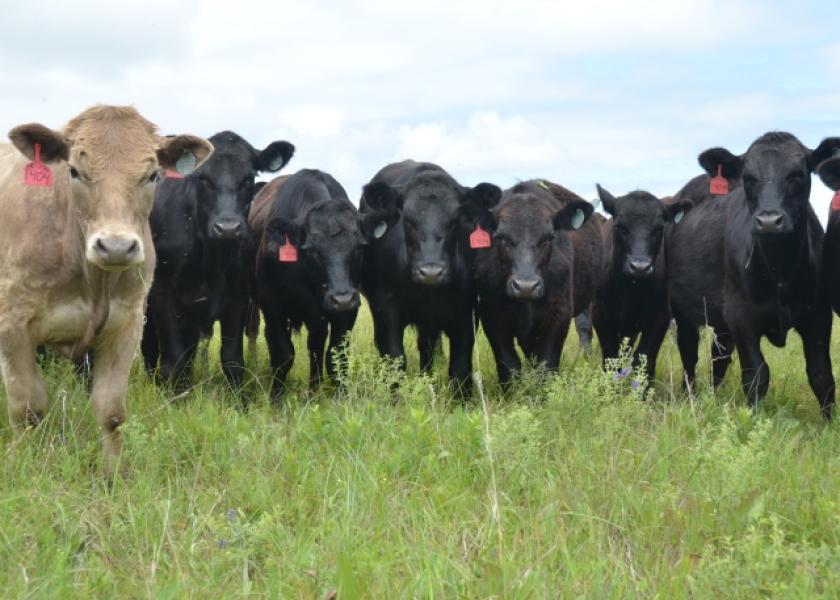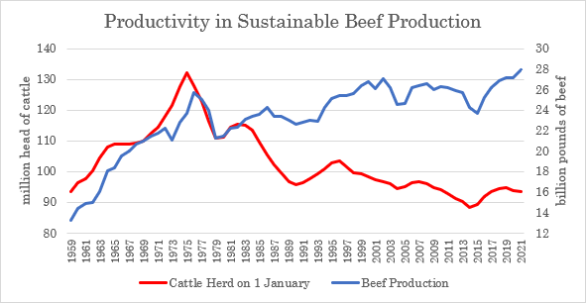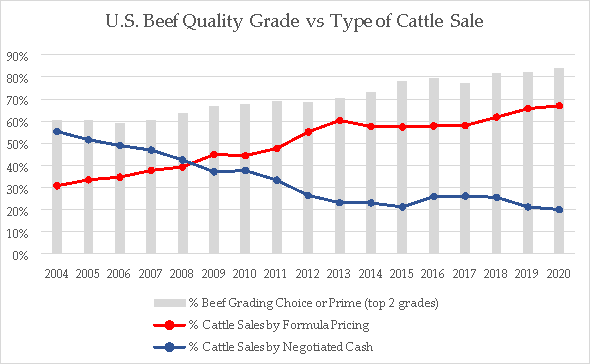Proposed Changes to Packers & Stockyards Act Could Harm Industry Sustainability Efforts

WASHINGTON, DC – The North American Meat Institute (NAMI) today said the Biden Administration’s proposed rules for the Packers and Stockyards Act could limit the abilities of the meat and poultry industry to respond to consumer demand regarding sustainability.
“In the case of beef, farmers and ranchers produce cattle using 33percent less land, 12 percent less water, and with a 16 percent smaller carbon footprint in 2007 compared to 1977. That is an astounding sustainability success story,” said Julie Anna Potts, President and CEO of the Meat Institute. “The U.S. meat industry cannot continue to build on this remarkable sustainable productivity growth and meet consumer expectations if the government restricts interactions between packers and producers. Government intervention could jeopardize the gains made to date as well as the industry’s ability to provide the products customers demand in the future.
The Meat Institute submitted written testimony for a hearing of the House Committee on Agriculture called, “Sustainability in the Livestock Sector: Environmental Gain and Economic Viability.”

The U.S. Department of Agriculture (USDA) has announced plans to propose new rules under the Packers and Stockyards Act to regulate the interactions between packers and producers. By design, the proposed rules will discourage the use of alternative marketing arrangements (AMAs) – the very tools that have improved efficiency, productivity, and risk management over the past two decades and allowed the sector to meet consumer expectations for increased beef quality.
As multiple agricultural economists and cattle producers have explained, AMAs increase market efficiency by transmitting market signals about consumers’ preferences to producers. The remarkable improvement in beef quality demonstrates this.

Today, consumers demand increased environmental sustainability, and AMAs are essential to providing support for undertaking innovative sustainability practices and improving efficiency.
In a 2021 online survey of over 1,000 consumers, 72 percent of consumers said “sustainability was a very or somewhat important purchase consideration,” and 68 percent said they were “willing to pay more for sustainable products.
Recognizing this strong consumer preference, in July 2021, the Meat Institute and 11 other organizations representing farmers and companies who produce the vast majority of America’s meat, poultry, and dairy products, and animal feed and ingredients, unveiled the Protein PACT for the People, Animals, and Climate of Tomorrow. The Protein PACT is the first joint initiative of its kind designed to verify progress toward global sustainable development goals across all animal protein sectors to ensure consumers can trust that meat aligns with their sustainability expectations. In addition, the Meat Institute is a member of the U.S. Roundtable for Sustainable Beef (USRSB), partnering with beef producers and others in the supply chain to advance beef sustainability through overarching and sector specific metrics and goals, and USRSB is a Protein PACT partner, joining our effort to share our progress in the beef sector.
Through Protein PACT, Meat Institute members have developed robust metrics for continuous improvement and have publicly committed to sustain healthy animals, thriving workers and communities, safe food, balanced diets, and the environment.
To encourage full participation by companies of all sizes, the Meat Institute has established a broad range of measurable indicators within each focus area. These indicators allow companies to demonstrate continuous improvement at every stage of their sustainability efforts, transparently demonstrating compliance and measuring progress in setting, tracking and delivering on ambitious public commitments.
“Our benchmarks are designed to complement and strengthen efforts by farmers and livestock producers, and also bridge to actions in grocery stores, restaurants and homes – all of which are needed to truly achieve our common goals for the people, animals and climate of tomorrow,” said Potts.







